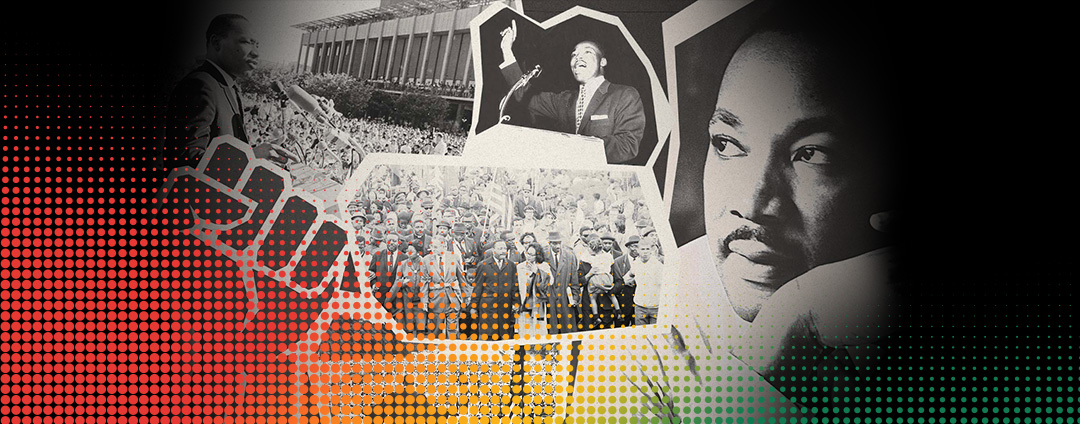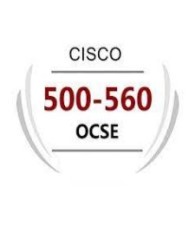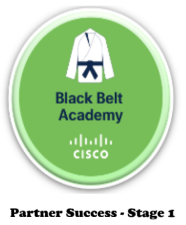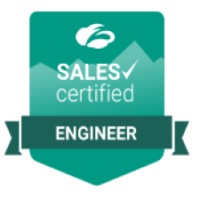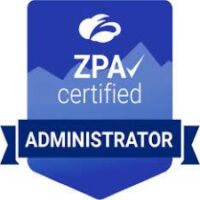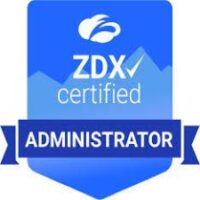“We are now faced with the fact that tomorrow is today. We are confronted with the fierce urgency of now. In this unfolding conundrum of life and history, there ’is’ such a thing as being too late. This is no time for apathy or complacency. This is a time for vigorous and positive action.” – Dr. Martin Luther King, Jr.
On August 28, 1963, at the Lincoln Memorial in Washington, D.C., Dr. Martin Luther King, Jr. delivered his famous “I Have a Dream” speech. Dr. King made a call for racial and social justice using the phrase “the fierce urgency of now.” He used this phrase to describe the imperative to address racial inequality throughout our institutions and society. It was also a call to action to believe in our ability to affect the world and commit to taking action together to forge a more just society.
Growing up in St. Louis, Missouri and having experienced racism at an early age, this speech lit a fire within me. While there are many powerful parts of this speech, “the fierce urgency of now” was what inspired my deep sense of social consciousness and sensitivity to human pain and injustice. From then on, Dr. King was my hero.
Today, I reside in San Diego, California. Many see California as more of a melting pot, however, even though it is the country’s technology hub, the state’s diversity isn’t adequately reflected within the industry. Nationally, Black people make up 12 percent of the overall US workforce, but only represent 8 percent of tech industry employees. The way this plays out is that I’m often the only Black person in the room. For many like me, this is our normal.
When I joined Zscaler in June 2020, I quickly realized the opportunity to increase diversity in our company and industry. At the time, I searched the organization for a safe space to network with like-minded individuals. It was then that I found inspiration in Dr. King’s phrase, and during my onboarding I reached out to our CEO to inquire about an Employee Resource Group (ERG) for Black employees. Our executives leaned in to support this request, and provided a foundation and sponsorship to help Black employees launch Black@Z. Several years later, we stand strong in our Black@Z mission to celebrate our Black employees, and provide them with resources and a support network to enhance their experience and their career at Zscaler.
As I reflect on Dr. Martin Luther King Jr.’s legacy, there are two questions that I feel are important to ask:
First, if Dr. King was alive today, what would he think of our industry and what would be “the fierce urgency of now”?
On one side, I believe Dr. King would celebrate the advancements and contributions of the Black community in tech—from Roy Clay Sr., referred to as the “Godfather of Silicon Valley,” to Lisa Gelobter who pioneered internet technologies, including her invention of Shockwave. On the other side, I imagine he would decry the lack of diversity and inclusion within the industry.
It’s possible that he would view the lack of representation as a continuation of the systemic inequalities that he fought against during the civil rights movement. He might recognize the threat of some emerging technologies, such as artificial intelligence, which can unfortunately replicate some of the biases and inequities that exist today, but I hope he would also see the positive opportunities for the tech industry to bring people together and improve the human condition, for all.
Dr. King’s philosophy that all should have access to equity and justice raises the second question I would ask: What can we as leaders in tech do to advance equity and inclusion globally?
I believe diversity in the workplace helps companies be more innovative and creative and, ultimately, achieve better results–and there’s ample data to support this. When it comes to representation, we have to be intentional about our recruiting and hiring process to ensure we’re working to make our organizations more diverse. We should also be championing inclusion in all of our decisions and interactions. I’m proud to share that Zscaler has a focused strategy to attract diverse candidates and foster a more inclusive workplace.
I’m grateful to be part of Black@Z and have support from my Zscaler family, and I’m excited that Black@Z will celebrate Dr. Martin Luther King, Jr. by leading a day of service on Monday, January 15 in multiple cities throughout the US. In honor of Dr. King’s legacy and birthday, we are inviting all Zscaler employees and their families to participate.
Dr. King’s words continue to inspire me, and I humbly ask my Zscaler community to embrace “the fierce urgency of now” to fuel our collective efforts in 2024 and beyond, always raising the bar on diversity, equity, inclusion, and belonging in our industry.
“We are now faced with the fact that tomorrow is today. We are confronted with the fierce urgency of now. In this unfolding conundrum of life and history, there ’is’ such a thing as being too late. This is no time for apathy or complacency. This is a time for vigorous and positive action.” – Dr. Martin Luther King, Jr.
On August 28, 1963, at the Lincoln Memorial in Washington, D.C., Dr. Martin Luther King, Jr. delivered his famous “I Have a Dream” speech. Dr. King made a call for racial and social justice using the phrase “the fierce urgency of now.” He used this phrase to describe the imperative to address racial inequality throughout our institutions and society. It was also a call to action to believe in our ability to affect the world and commit to taking action together to forge a more just society.
Growing up in St. Louis, Missouri and having experienced racism at an early age, this speech lit a fire within me. While there are many powerful parts of this speech, “the fierce urgency of now” was what inspired my deep sense of social consciousness and sensitivity to human pain and injustice. From then on, Dr. King was my hero.
Today, I reside in San Diego, California. Many see California as more of a melting pot, however, even though it is the country’s technology hub, the state’s diversity isn’t adequately reflected within the industry. Nationally, Black people make up 12 percent of the overall US workforce, but only represent 8 percent of tech industry employees. The way this plays out is that I’m often the only Black person in the room. For many like me, this is our normal.
When I joined Zscaler in June 2020, I quickly realized the opportunity to increase diversity in our company and industry. At the time, I searched the organization for a safe space to network with like-minded individuals. It was then that I found inspiration in Dr. King’s phrase, and during my onboarding I reached out to our CEO to inquire about an Employee Resource Group (ERG) for Black employees. Our executives leaned in to support this request, and provided a foundation and sponsorship to help Black employees launch Black@Z. Several years later, we stand strong in our Black@Z mission to celebrate our Black employees, and provide them with resources and a support network to enhance their experience and their career at Zscaler.
As I reflect on Dr. Martin Luther King Jr.’s legacy, there are two questions that I feel are important to ask:
First, if Dr. King was alive today, what would he think of our industry and what would be “the fierce urgency of now”?
On one side, I believe Dr. King would celebrate the advancements and contributions of the Black community in tech—from Roy Clay Sr., referred to as the “Godfather of Silicon Valley,” to Lisa Gelobter who pioneered internet technologies, including her invention of Shockwave. On the other side, I imagine he would decry the lack of diversity and inclusion within the industry.
It’s possible that he would view the lack of representation as a continuation of the systemic inequalities that he fought against during the civil rights movement. He might recognize the threat of some emerging technologies, such as artificial intelligence, which can unfortunately replicate some of the biases and inequities that exist today, but I hope he would also see the positive opportunities for the tech industry to bring people together and improve the human condition, for all.
Dr. King’s philosophy that all should have access to equity and justice raises the second question I would ask: What can we as leaders in tech do to advance equity and inclusion globally?
I believe diversity in the workplace helps companies be more innovative and creative and, ultimately, achieve better results–and there’s ample data to support this. When it comes to representation, we have to be intentional about our recruiting and hiring process to ensure we’re working to make our organizations more diverse. We should also be championing inclusion in all of our decisions and interactions. I’m proud to share that Zscaler has a focused strategy to attract diverse candidates and foster a more inclusive workplace.
I’m grateful to be part of Black@Z and have support from my Zscaler family, and I’m excited that Black@Z will celebrate Dr. Martin Luther King, Jr. by leading a day of service on Monday, January 15 in multiple cities throughout the US. In honor of Dr. King’s legacy and birthday, we are inviting all Zscaler employees and their families to participate.
Dr. King’s words continue to inspire me, and I humbly ask my Zscaler community to embrace “the fierce urgency of now” to fuel our collective efforts in 2024 and beyond, always raising the bar on diversity, equity, inclusion, and belonging in our industry.
“We are now faced with the fact that tomorrow is today. We are confronted with the fierce urgency of now. In this unfolding conundrum of life and history, there ’is’ such a thing as being too late. This is no time for apathy or complacency. This is a time for vigorous and positive action.” – Dr. Martin Luther King, Jr.
On August 28, 1963, at the Lincoln Memorial in Washington, D.C., Dr. Martin Luther King, Jr. delivered his famous “I Have a Dream” speech. Dr. King made a call for racial and social justice using the phrase “the fierce urgency of now.” He used this phrase to describe the imperative to address racial inequality throughout our institutions and society. It was also a call to action to believe in our ability to affect the world and commit to taking action together to forge a more just society.
Growing up in St. Louis, Missouri and having experienced racism at an early age, this speech lit a fire within me. While there are many powerful parts of this speech, “the fierce urgency of now” was what inspired my deep sense of social consciousness and sensitivity to human pain and injustice. From then on, Dr. King was my hero.
Today, I reside in San Diego, California. Many see California as more of a melting pot, however, even though it is the country’s technology hub, the state’s diversity isn’t adequately reflected within the industry. Nationally, Black people make up 12 percent of the overall US workforce, but only represent 8 percent of tech industry employees. The way this plays out is that I’m often the only Black person in the room. For many like me, this is our normal.
When I joined Zscaler in June 2020, I quickly realized the opportunity to increase diversity in our company and industry. At the time, I searched the organization for a safe space to network with like-minded individuals. It was then that I found inspiration in Dr. King’s phrase, and during my onboarding I reached out to our CEO to inquire about an Employee Resource Group (ERG) for Black employees. Our executives leaned in to support this request, and provided a foundation and sponsorship to help Black employees launch Black@Z. Several years later, we stand strong in our Black@Z mission to celebrate our Black employees, and provide them with resources and a support network to enhance their experience and their career at Zscaler.
As I reflect on Dr. Martin Luther King Jr.’s legacy, there are two questions that I feel are important to ask:
First, if Dr. King was alive today, what would he think of our industry and what would be “the fierce urgency of now”?
On one side, I believe Dr. King would celebrate the advancements and contributions of the Black community in tech—from Roy Clay Sr., referred to as the “Godfather of Silicon Valley,” to Lisa Gelobter who pioneered internet technologies, including her invention of Shockwave. On the other side, I imagine he would decry the lack of diversity and inclusion within the industry.
It’s possible that he would view the lack of representation as a continuation of the systemic inequalities that he fought against during the civil rights movement. He might recognize the threat of some emerging technologies, such as artificial intelligence, which can unfortunately replicate some of the biases and inequities that exist today, but I hope he would also see the positive opportunities for the tech industry to bring people together and improve the human condition, for all.
Dr. King’s philosophy that all should have access to equity and justice raises the second question I would ask: What can we as leaders in tech do to advance equity and inclusion globally?
I believe diversity in the workplace helps companies be more innovative and creative and, ultimately, achieve better results–and there’s ample data to support this. When it comes to representation, we have to be intentional about our recruiting and hiring process to ensure we’re working to make our organizations more diverse. We should also be championing inclusion in all of our decisions and interactions. I’m proud to share that Zscaler has a focused strategy to attract diverse candidates and foster a more inclusive workplace.
I’m grateful to be part of Black@Z and have support from my Zscaler family, and I’m excited that Black@Z will celebrate Dr. Martin Luther King, Jr. by leading a day of service on Monday, January 15 in multiple cities throughout the US. In honor of Dr. King’s legacy and birthday, we are inviting all Zscaler employees and their families to participate.
Dr. King’s words continue to inspire me, and I humbly ask my Zscaler community to embrace “the fierce urgency of now” to fuel our collective efforts in 2024 and beyond, always raising the bar on diversity, equity, inclusion, and belonging in our industry.

